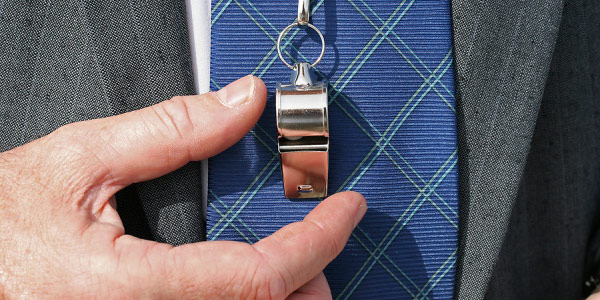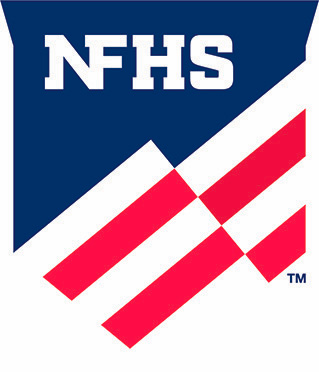Sherri Murrell (Portland State) Is Still Only Openly Gay D-I Coach
http://www.oregonlive.com/vikings/index.ssf/2011/07/sherri_murrell_after_four_winn.html
That image reverberated nationwide. Already out to people she knew, Murrell became known as the only publicly gay coach in Division I women’s basketball.
Two years later, despite an expanding era of openly gay mayors, clergy, even an NBA team president, Murrell still stands alone. She is bemused by the notion that there is but one gay coach in a sport long known to have lesbian players and leaders, and saddened that no colleague has felt safe to follow her.Murrell prefers to be known for the Portland State team she has built with players corralled in the crucial recruiting month of July. She led the Vikings to the NCAA Tournament in 2010 and was named Big Sky Conference coach of the year last season.
But she has shouldered the role of gay leader in her sport for one reason: There’s no one with whom to share it.
“There are a lot of coaches out there that want to do this,” Murrell said. “But they’re just so afraid. I think I can kind of help say, ’Hey, I’m successful. It has not affected my program whatsoever.’”
A Redmond girl
Coach Murrell,
I only wish that I (could) live my life as you do. Every year when I think I am going to make the big step, the culture around me pushes me down. I coach in the South and I just can’t imagine being out. Thank you for the hope that it can be done.
— Email
Murrell, 43, grew up on basketball. She played outside the family’s Redmond ranch home — on a Nerf hoop in the front hallway when it got cold — honing a quick dribble to the basket as a way to score on her older brother.
In Murrell’s first organized game, in fifth grade, the coach told her parents he was benching her for the second half. He needed to give the other kids a chance.
“The score was 20-1 at halftime, and Sherri had scored all the points,” Frank Murrell said. “I knew we had something then.”
Frank sold his plumbing business and the family landed in Portland, where Sherri played her junior year at Parkrose High. When her team lost in the playoffs, Frank recalled, her teammates shook it off while Sherri sobbed in the corner.
She transferred to basketball powerhouse St. Mary’s Academy and helped it win the 1985 big-school state title, and later landed at Pepperdine, where she played basketball and earned a degree in public relations.
After serving as a graduate assistant coach at Pepperdine, Murrell (“rhymes with ’squirrel,’” her dad says) landed an interview for an assistant’s job at another California university. She aced it, thrilled to be on her way.
But soon after that, her Pepperdine coach called her into his office. He’d gotten a call from her prospective employer.
“’They said that they’re a little concerned about hiring you,’” Murrell recalled him saying, “’because they believe you might be gay.’
“I was floored.”
Moving up, out
Yours is nothing less than a heroic action in my book. A decision which will, inarguably, save lives.
Even as the stakes of women’s college basketball rise, with burgeoning budgets and televised games, the sport continues to fight for fan and media attention.
Some coaches wear skirts or brandish spouses to assure the public that they’re straight, advocates say. Most perilous for gay coaches is the practice of recruiting, in which landing the right player can mean the difference between capturing the conference title and losing your job.
“We’re going after the same kid,” Murrell said, “and it just takes one little thing for that kid to say no.”
As she ascended in coaching — as a head coach at Division III Christian school George Fox in Newberg, then Division-I University of the Pacific in Stockton, Calif. — Murrell won, and stayed closeted.
At age 35 she took over at Washington State in the prestigious Pacific-10 Conference. In November 2002 she met Shuman through a mutual friend — when the Cougars hosted Oregon’s football team — and fell in love. A year and a half later Shuman left the day-care business she was running and moved to Pullman, Wash.
The couple was out to some people but not all. Shuman, a former cheerleader at Gresham’s Centennial High, would root for the Cougars from the stands but stay away as players and coaches converged for postgame hugs. Murrell would host the team for barbecues and Shuman would hide in the home they shared.
Murrell’s misery at five consecutive losing seasons was matched only by the strain of concealing who she was.
“That was something that she always preached to her team, to have integrity, to be honest,” Shuman said. “She knew that she didn’t have integrity at the moment.”
Murrell resigned from Washington State, mostly because of the drain of the job, forgoing three more years of a six-figure salary. But she also vowed to never dissemble again.
She and Shuman bought a house in Portland, which Murrell considers home, and mulled what to do next. Then, kismet struck: Within weeks Portland State’s coach abruptly resigned, athletic director Torre Chisholm targeted Murrell — “She was the list,” he said — and she won the job.
You have amazing courage to live your life in truth in this closeted profession we coach in. It’s so hard to live one life on the court and another off… . You have given me courage today. My partner suffers the most from this and one day hopes we can be in the media guide like your family.
Murrell inherited a program on the rise and improved it, attracting players from the area’s top high school programs who in previous years had gone elsewhere. In spring 2010, Murrell’s Vikings overcame a shaky midseason to win the Big Sky Conference tournament and became the first Division I women’s team in Oregon since 2005 to reach the NCAA Tournament. Under Murrell, the Vikings are 83-46.
Most days she simply goes about her life — running a kids’ basketball camp, scouting players at the End of the Trail tournament in Oregon City, preparing the twins for potty training, negotiating the Netflix queue (Shuman prefers comedy or drama to Murrell’s action and spy flicks).
But the weekly, sometimes daily, emails of support from closeted coaches, players and straight allies keep pulling Murrell to advocacy. She sits on advisory boards, spoke at the Nike campus recently and appeared in the bonus features of the 2009 documentary “Training Rules” about the long reign of former Penn State coach Rene Portland and her “no lesbians” team policy.
Chisholm said he’s received no complaints or concerns about Murrell’s orientation. Murrell said it’s difficult to tell whether being out has hurt recruiting, other than a Mormon player saying early in the process that she wasn’t interested in PSU.
“Probably the reason why is me,” Murrell said. “But for the most part it’s not been an issue.”
More distressing, Murrell said, is women’s basketball coaches abiding a culture of silence.
“The more that you have gay coaches being OK with who they are,” she said, “then you’re not going to have the negative recruiting.”
Yet despite an anti-gay-slur commercial featuring NBA player Grant Hill, despite several Major League Baseball teams shooting videos to condemn homophobia, despite NFL Hall of Fame receiver Michael Irvin speaking to ’Out’ magazine about his late gay brother, “The silence from women is just deafening,” Griffin said.
“Sherri is an incredible pioneer,” she said. “The thing that’s so frustrating is that’s she’s a great role model. And it seems like it’s done nothing but make her a better coach.”







